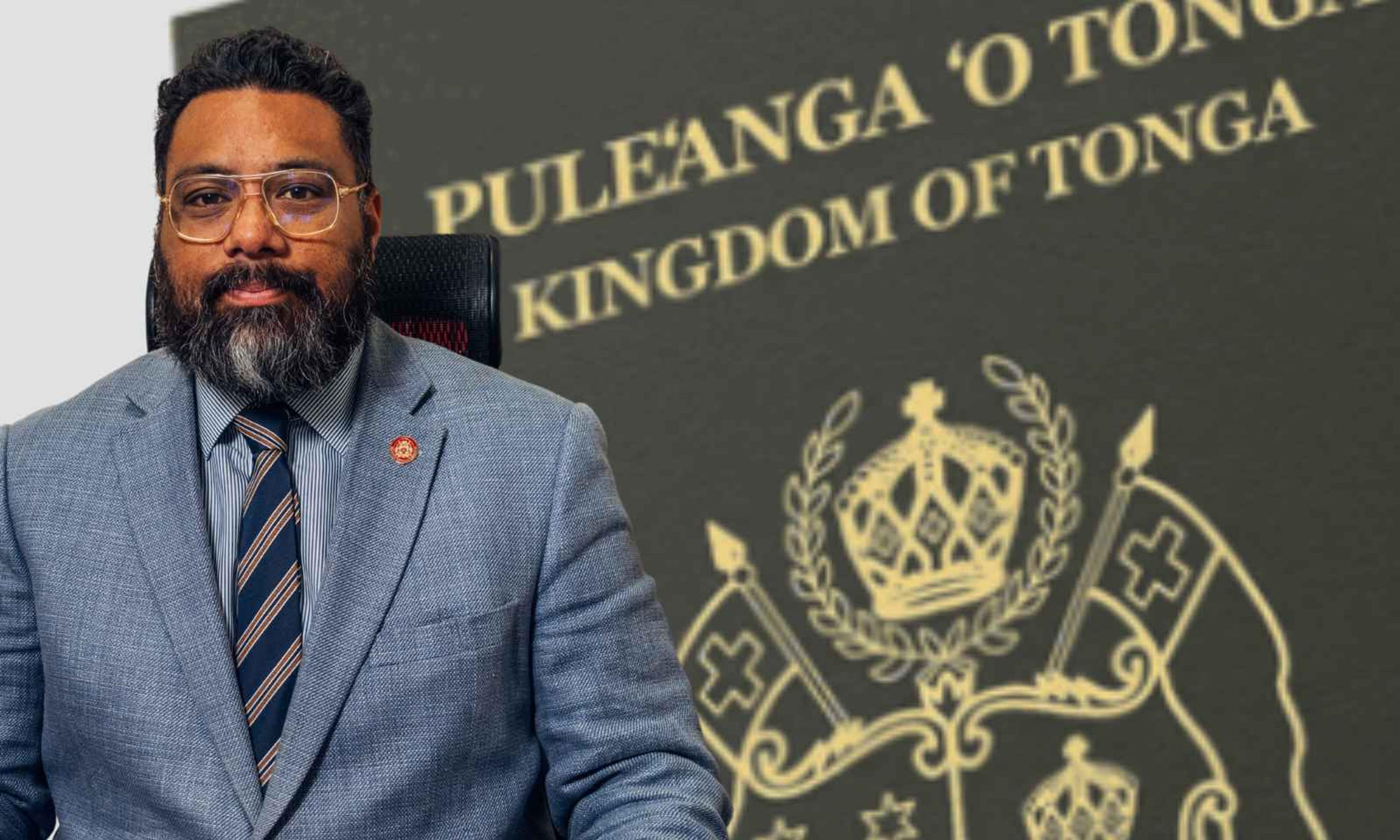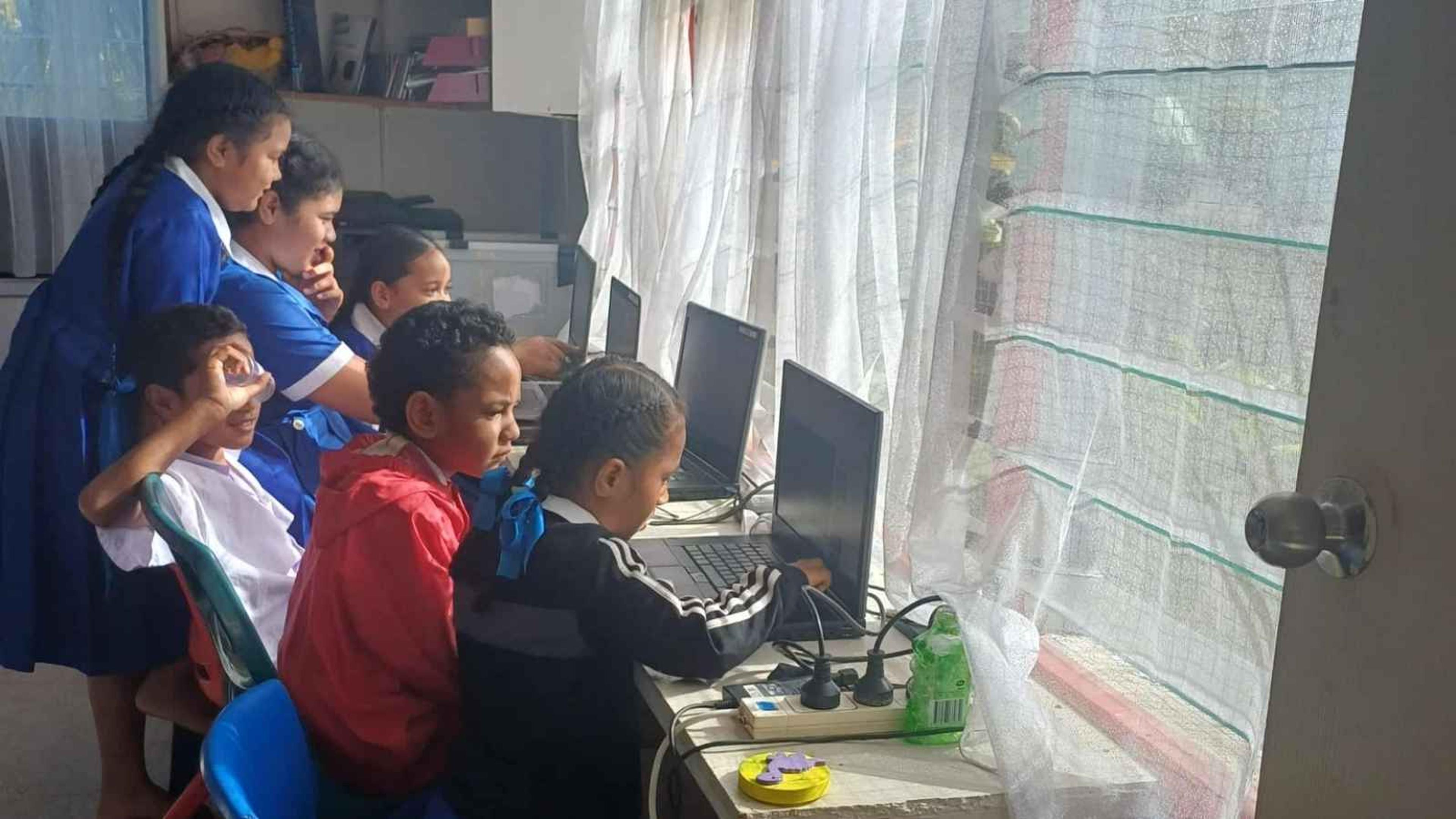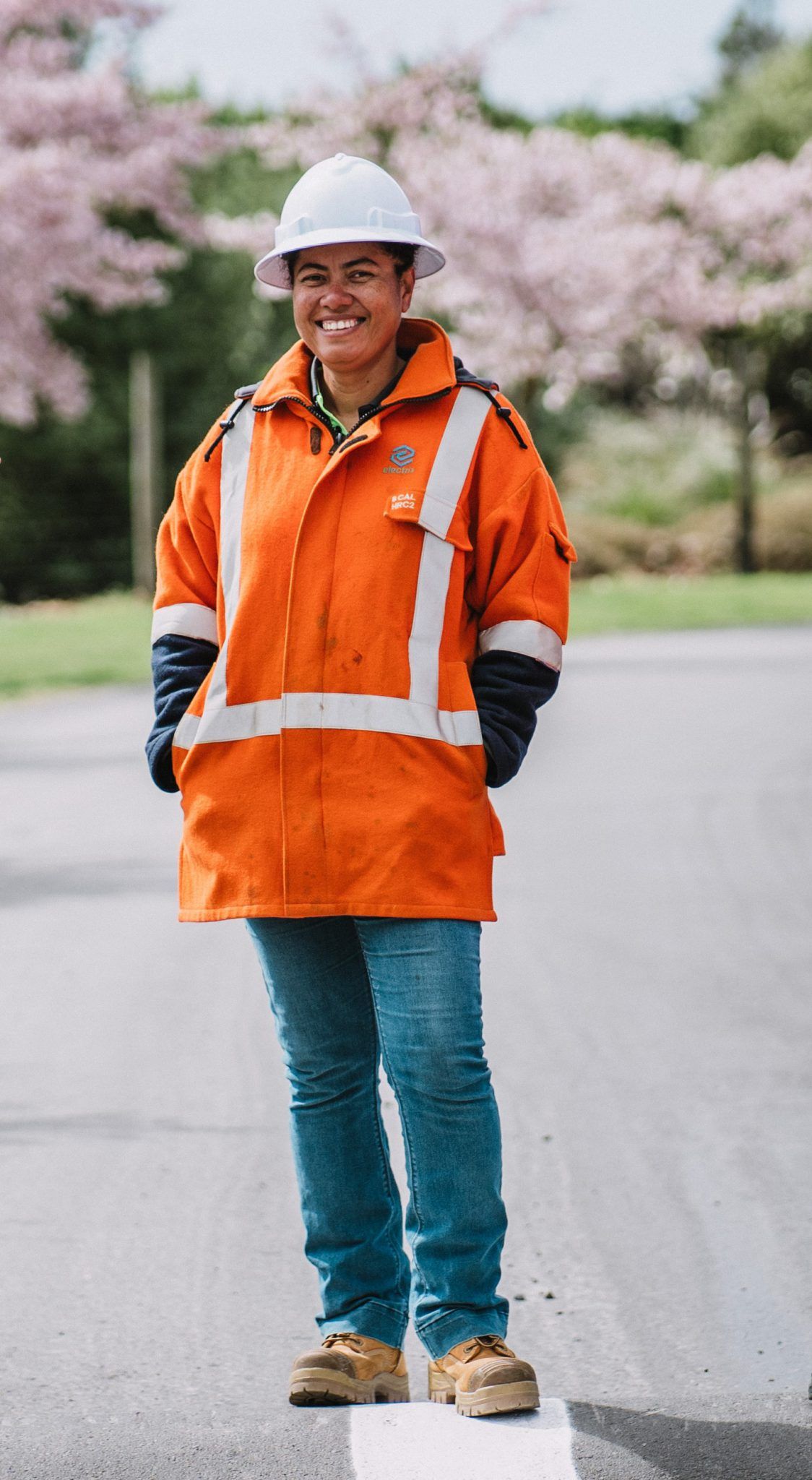

Laisa Pickering is of Fijian heritage and works as a trainer in high voltage line mechanics.
Photo/RNZ
Meet New Zealand’s first female high voltage live line instructor
Laisa Pickering from Fiji is paving the way for women in construction, infrastructure, and line mechanics.


‘I knew something was wrong’: Pacific children miss out on early hearing support

Tonga makes historic breakthrough at Oceania Youth Chess Championship

‘A Library for the Heart of Tonga’: Building a hub for Nuku’alofa

Fresh warning as Tonga PM defends citizenship investment scheme

‘I knew something was wrong’: Pacific children miss out on early hearing support

Tonga makes historic breakthrough at Oceania Youth Chess Championship

‘A Library for the Heart of Tonga’: Building a hub for Nuku’alofa
From learning handymaking skills with her grandfather in Fiji to operating heavy machinery, one iTaukei woman in Aotearoa New Zealand is determined to show that women can do it all.
Laisa Pickering grew up in the Macuata Province in Naduru Village. After her parents separated when she was young, she spent most of her time with her mother’s family.
For two years, Pickering worked as a Trainer and Assessor for MITA Consulting Limited, a nationwide company specialising in cable jointing and line mechanics, where they install, repair, and maintain overhead and underground power lines.
Pickering recently “levelled up” to become the first female instructor for high-voltage live line work, focusing on 11,000-volt lines, a rare achievement in the industry that is not for the faint-hearted.
“Sometimes we do work on the lines and it stays alive. So, that's a skill set that you have to train for,” Pickering tells 531pi Pacific Days’ host Nemai Tagicakibau.
“Women don't stay in that level long enough to become an instructor. I was, fortunately, one of the first women in New Zealand to get that far. Usually, in my field, they tend to go into the office, project managing or that sort of thing. Not particularly in the training or mentoring side of things.”
Career journey and motivations
Pickering’s career started right after high school with an Australian timber company, followed by a short stint in the Fijian forestry sector, where she was the only woman in the plant.
At 21, she moved to Aotearoa and worked in a sawmill. But the lack of forestry opportunities in Auckland led her to transition into civil construction.
“So, I was driving big machines and diggers. It was kind of similar to what we were doing in the bush back in the Lautoka area in Rasa Sawmill.”
Having faced challenges like financial instability and a lack of qualifications while balancing motherhood and family life, Pickering sought to upskill.
“When I left Fiji, I didn’t have anything, didn’t quite manage to do my final exams in high school as well. You still had to get NZQA credits.
“I needed something stable.. I got to meet some line mechanics. I just talked to them about their career. Prior to this, I had gone to MIT, talked to the careers advisors there and the lecturers to see how I could progress and get some qualifications under my belt.”
Challenges as a woman in the industry
Early in her career, Pickering faced discrimination because of her gender, but those doubts subsided once she proved her skills in operating heavy machinery.
“A lot of the typical, the usual stereotypes, like, ‘It's a woman, what are you doing in this field?’ But as soon as I jump in a truck or in a machine, they’re like, ‘Watch out for that Fijian girl, don't underestimate her!’”

Laisa Pickering encourages women thinking about a career in line mechanics to “give it a go”. Photo/Connexis
From milestones to evolution
With a goal to increase female representation in the electrical industry, Pickering is on a mission to “put it out there that women can do the work”.
Reflecting on her experience from 2011 to 2012, she highlights her first employer's progressive approach, which included four women in the training. However, over time, the number of women in the field decreased.
“We kind of branched off and did our own things. At the end, it was just myself in the depot, sometimes on my own, the last Mohican,” Pickering laughs.

The first Ultimit all-female line mechanic team at a Wellington competition. From left: Omexom line mechanic Mereilisoni “Mere” Qeisene, Unison trainee line mechanic Juliet Fordyce, Unison line mechanic Natasha Goodall, Connexis director Kaarin Gaukrodger, Ultimit line mechanic team manager Laisa Pickering from MITA Consulting, and Omexom line mechanic Azra Wenzlick. Photo/Connexis
As a trainer today, she is witnessing change, especially through visibility and performance in competitions such as the Annual Connection Line Mechanic Competition, where the country’s top line crews go head-to-head in a range of skills-based activities.
In 2022, Pickering led an all-female team that finished second overall. This achievement helped shift perceptions in the industry, particularly the belief that “brute force” is key.
“They got to see that they not only have a female in the team, but there’s an all-female team including the managers and everybody that's involved,” she says.
“These days, we have lots of tools and machinery that do all the heavy lifting. So, it’s not all about brute force anymore. You don’t have to be a big bully or a strong person to do the job. You use the crane.”